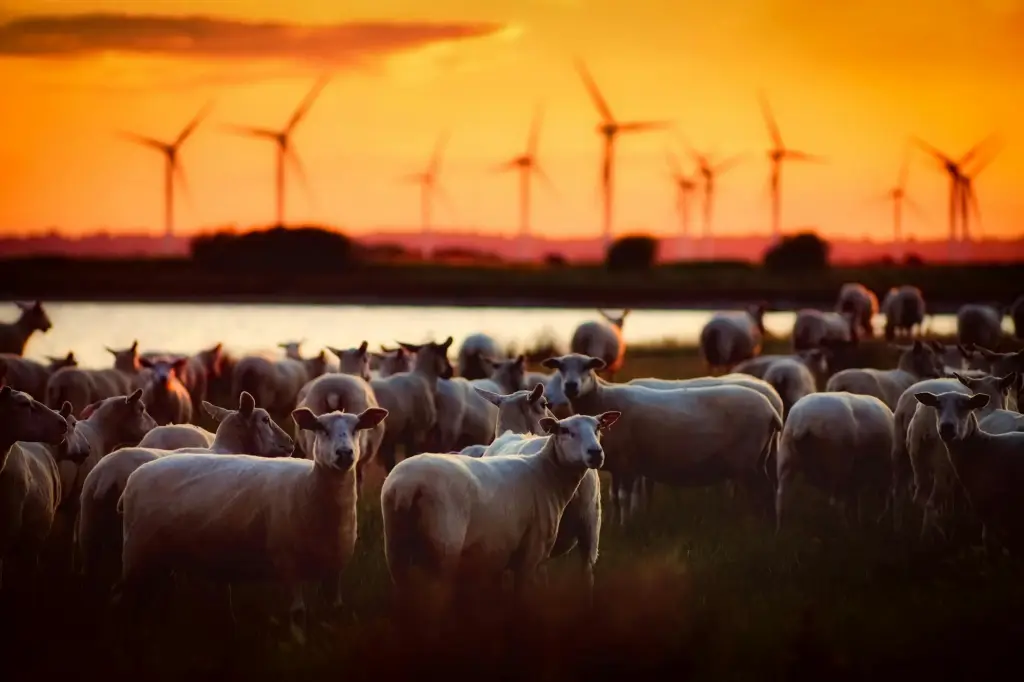By Rabbi Shmuly Yanklowitz
According to Michael Grunwald’s recent essay in The New York Times, industrial agriculture is essential for feeding the world’s expanding population, despite its negative environmental effects. It is unrealistic and possibly harmful, he argues, to focus on “regenerative agriculture” as the main remedy.
Is Efficiency a Necessary Evil?
Grunwald agrees that traditional farming harms the environment by releasing greenhouse gases, deforestation, and polluting water. With its emphasis on productivity and high yields, he accurately notes that industrial agriculture plays a major role in the world’s food production. He contends that merely substituting more natural techniques for industrial agriculture may result in food shortages and a greater reliance on less sustainable farming methods elsewhere in the world. In order to maximize agricultural productivity, while reducing environmental impact, he suggests that optimizing current industrial systems might be a more practical and successful strategy.
The Unspoken Price of Efficiency: Environmental Damage and Animal Pain
Grunwald’s reasoning, however, ignores the inherent brutality of factory farming. Many animals are raised for food in frequently terrible conditions. Overcrowding, a lack of space, and unhygienic conditions are common in Confined Animal Feeding Operations (CAFOs), which cause severe animal suffering. These circumstances may consist of the following:
- Stress on the body and mind: Animals are frequently kept in cramped quarters, which causes stress annoyance and strange behaviors.
- Disease outbreaks: Diseases can spread quickly due to overcrowding and unhygienic conditions, which can result in serious animal suffering and death.
- Mutilations: A lot of animals raised for food go through unpleasant operations, like castration, beak trimming, and tail docking without receiving enough anesthesia.
Because they can aid in the development and spread of bacteria resistant to antibiotics, these practices not only raise ethical concerns, but also present serious risks to public health.
A Spark for Systemic Change That Goes Beyond Reform
Even though he recognizes the detrimental effects of factory farming, he contends that reforming it, rather than completely doing away with it, is more practical. An analogy between factory farming and systems that maintained slavery ignores the essential ethical distinctions between these problems. But, similar to factory farming, slavery is involved in the exploitation and suffering of living beings. Note that slavery was an unjustifiable system of systematic oppression and dehumanization. Although there were some attempts at reforming slavery, its total abolition was the ultimate objective.
Likewise, although reforming factory farming might result in some improvements to environmental and animal welfare, it ultimately upholds an exploitative and unsustainable system. Instead of trying to reform factory farming, the objective should be to move toward a more sustainable and equitable food system that puts less emphasis on animal agriculture and more emphasis on plant-based foods.
The Government Subsidies’ Function: Supporting an Unsustainable System
Additionally, Grunwald’s argument ignores the substantial contribution that government subsidies make to maintaining industrial agriculture’s hegemony. While the production of corn, soybeans, and other animal feed is heavily subsidized with taxpayer dollars, plant-based agriculture and sustainable farming methods receive much less support. In fact, an analysis of subsidies, lobbying, and regulations indicated that livestock farmers in the US received roughly 800 times more public funding than cultivated meat or plant-based meat groups. In the EU, the animal farmers got roughly 1,200 times more public funding. By artificially lowering their price, these subsidies make animal products more accessible than their plant-based counterparts.
Governments should reallocate these subsidies to encourage the development and uptake of plant-based protein sources, such as cultivated meat, plant-based dairy substitutes, and precision fermentation technologies, rather than making significant investments in tweaking factory farming systems. The development of more ethical and sustainable food production practices would be encouraged by this change in investment, which would also lower the cost and increase consumer accessibility to plant-based options.
Moving Past Industrial Agriculture: An Appeal for Systemic Change
Grunwald stresses, in his conclusion, the necessity of boosting agricultural output, while reducing its negative effects on the environment. Focusing on efficiency within the current industrial agricultural system, he contends, is the most practical and successful strategy.
The industrial food system that exists today, however, is essentially unsustainable and morally dubious. We must turn our attention to creating a more equitable and just food system that puts the following first:
- Plant-based diets: A shift to a plant-based diet is essential to minimizing animal suffering, enhancing human health, and lessening our impact on the environment.
- Sustainable agricultural methods: Promoting and rewarding regenerative farming methods, like agroecology, can help to strengthen biodiversity, lessen dependency on dangerous chemicals, and improve soil health.
- Putting money into plant-based innovation: Promoting research and development in plant-based protein sources, like precision fermentation and farmed meat, is crucial to building a more just and sustainable food system.
Redistributing government funding to promote ethical and sustainable food production, while gradually eliminating funding for destructive methods, like factory farming, is known as reforming agricultural subsidies. Developing a food system that is genuinely moral, sustainable, and equitable for all living and non-living things should be the aim rather than making factory farming less bad.
Rabbi Dr. Shmuly Yanklowitz is the Founder & President of Shamayim: Jewish Animal Advocacy which is building the Jewish Vegan movement.


Leave a Reply